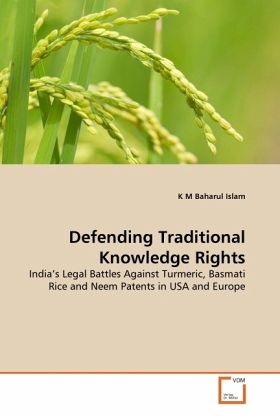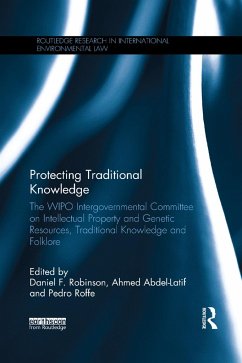
Defending Traditional Knowledge Rights
India's Legal Battles Against Turmeric, Basmati Rice and Neem Patents in USA and Europe
Versandkostenfrei!
Versandfertig in 6-10 Tagen
32,99 €
inkl. MwSt.

PAYBACK Punkte
16 °P sammeln!
Knowledge is power in today's information society and intellectual property rights (IPR) attain a significant role in the economics of this society. It is usually presumed that the prevailing international concepts of IPR laws do not help indigenous communities in safeguarding their traditional knowledge. Intellectual Property Rights (IPR) values the innovative mind and individual proprietary right over a new product. Traditional Knowledge (TK), on the other hand, values social ownership of that knowledge resource. Plants and genetic resources are considered as a common heritage of mankind tha...
Knowledge is power in today's information society and intellectual property rights (IPR) attain a significant role in the economics of this society. It is usually presumed that the prevailing international concepts of IPR laws do not help indigenous communities in safeguarding their traditional knowledge. Intellectual Property Rights (IPR) values the innovative mind and individual proprietary right over a new product. Traditional Knowledge (TK), on the other hand, values social ownership of that knowledge resource. Plants and genetic resources are considered as a common heritage of mankind that is to be preserved, freely available for use, and ultimately benefit the present and future generations. The conflict between IPR and TK has also brought to light the ways that are being adopted by countries like India not only to protect its own TK through national IPR systems, but also to put in place vigilance mechanisms against misappropriation of its TK by unscrupulous patentees. Moreover, other IPR mechanisms like trade secrets, geographical indications, trade marks, or sui generis rights of indigenous people can also come to the rescue of TK.












